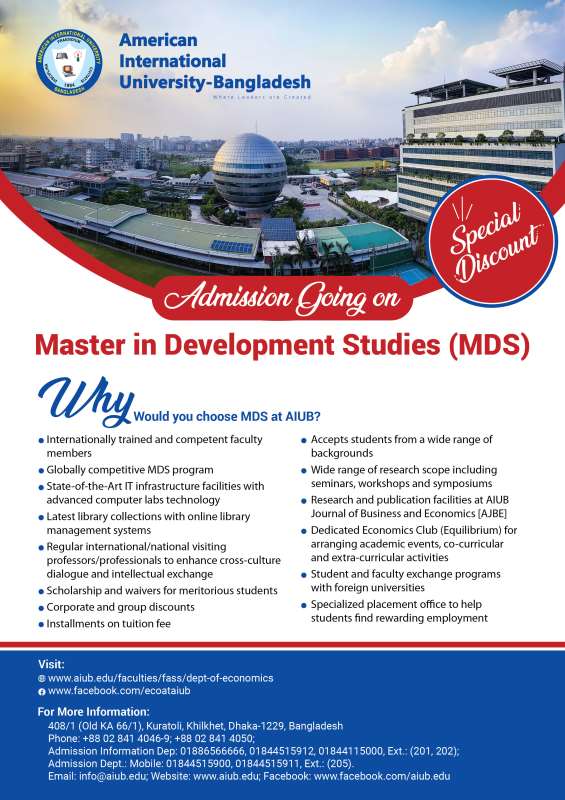Course Catalog
Browse here for course catalog of Masters in Development Studies offered by the Faculty of Arts and Social Sciences (FASS)
View Courses Program Educational Objectives (PEOs)Course Curriculum
Browse here for course curriculum of Masters in Development Studies offered by the Faculty of Arts and Social Sciences (FASS)
View Curriculum
Admission Requirements for Master in Development Studies
Requirements for Master in Development Studies:
(a) Graduation in any discipline of Health Science.
(b) Graduation in any discipline with work experience in Health Care Organization.
(c) Posses an M.B.B.S., B.D.S., M.D. or a 3-4 years Bachelor degree or any other equivalent degree.
(d) No 3rd division (Exception may be made for candidates with substantial amount of experience).

Apply Now
Online Admission Form Fill-up :
Step 01: Login (create a new applicant or use already created user name) at http://admission.aiub.edu
Step 02: Fill up all required fields with correct data and upload a recent color photograph and academic papers (in .JPG format)
Step 03: Take print outs of the Applicant Copy and preserve it for future references.
Step 04: Usually it requires 24 hours (72 hours for weekends) to verify the educational information. Applicants may proceed to Payment after the Verification is done.
Step 05: After the Verification is done. Applicant can download the Admit Card from the Portal before attending the Admission Examination.
Step 06: Bring the Admit Card for the Admission Examination.
